2019 Recipients
Addiction
Geri Iininaatoáákii Bemister-Williams
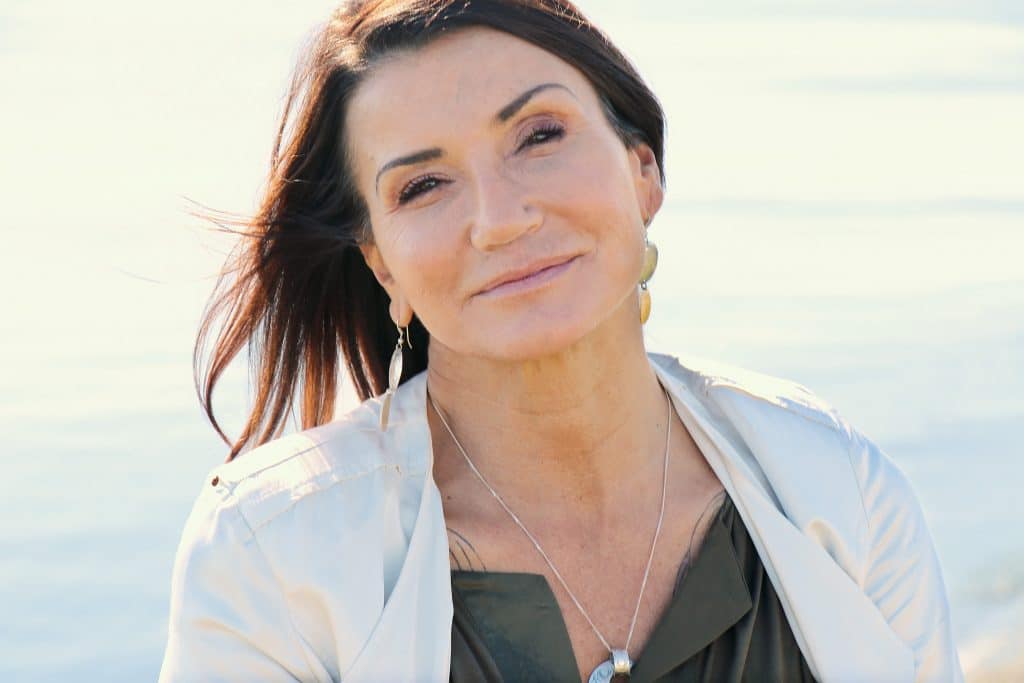
Abstinence-based recovery is possible and attainable—my journey is proof of that. The love from my family when I couldn’t love myself is what got me sober.
As a child, Geri Bemister faced traumatic sexual abuse by trusted family members. This experience left her vulnerable to substance use and other high-risk behaviours before reaching adulthood. Before long, she turned to the illegal drug trade to fuel her addictions. Her vivacious spirit and strength allowed her to succeed as an athlete and student despite her suffering. By her early thirties, though, her body and life had deteriorated under the weight of her substance use.
Having reached the limit of their ability to support her, Geri’s mother and sister intervened, asking Geri to prepare a list of people to invite to her funeral. This sobering moment gave her the motivation to enter rehabilitation. Geri immediately began to pay forward the tremendous support she received, volunteering to mentor people in early recovery. She quickly enrolled in university and went on to complete her MA in Criminal Justice; however, recovery didn’t come without its challenges. After a decade of being sober, Geri endured a near-death experience arising from complications with breast cancer. Geri told herself that if addiction wasn’t going to kill her, neither was cancer.
Early in her recovery, she also began exploring her Indigenous roots. She found strength and family by connecting with Elders and people in ceremony within her ancestral Siksiká (Blackfoot) community. Drawing on her education, culture, and extensive personal experience, Geri continues to enrich her community: as an interventionist, professor, life coach, counsellor and consultant. Various provincial and national organizations have called on her expertise to address some of society’s most challenging issues. She has dedicated her life of recovery to supporting people struggling with trauma, substance-use and criminality, and transforming the systems needed to support their rehabilitation.
Media
Physical Rehabilitation
Harriet Ronaghan
A devastating car crash left 18-year-old Harriet Ronaghan with a traumatic brain injury. Given just a 5% chance to live, this vibrant young ballerina survived surgery but remained in a coma for over three months. To recover from her type of injury, she had to build new pathways to control her basic functions. After waking from her coma, she had to relearn how to blink, swallow, talk, walk, and care for herself – skills doctors told her she might never reclaim.
Robbed of her independence, mobility, and many friends (overwhelmed by the gravity of her injury), Harriet refused to let this accident take more from her. One grueling step at a time, she began to recover. Uplifted by the love of her family and her own characteristic strength and determination, Harriet was walking without assistance after just 16 months. Three months later, she went on her first date with the man she would later marry on the 9th anniversary of her accident. Last year, they celebrated the birth of their first child, Charlie.
Early in her recovery, Harriet helped the father of a young man in a coma simply by sharing her story. Determined to amplify her message of hope, just 10 months after the accident she began typing – with her one working finger – a manuscript for her book, You are my Sunshine: The Journey Through my Recovery with a Traumatic Brain Injury. To inspire those affected by trauma, she continues to share her story through media, presentations, and personal connections. Just as Harriet forged new pathways in her brain, she has redefined the path to her bright future, transforming the people and community around her.
Media
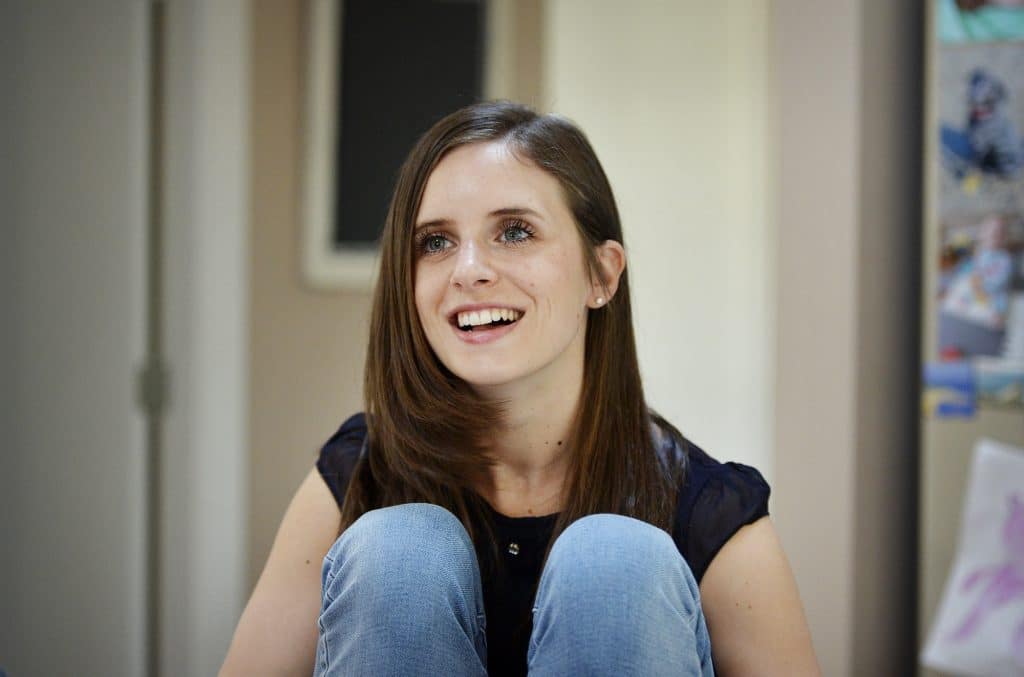
My recovery was a very long, tiring, and slow process. Along the way, I’ve shared my story with hundreds of people. It brings me joy to see how my story can help and inspire others.
mental health
Erin Emiru
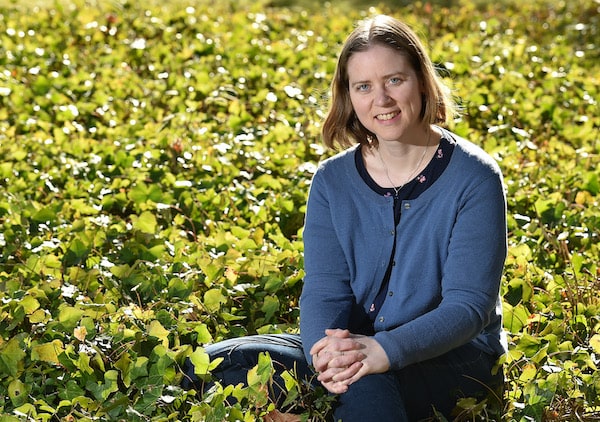
I feel small, but encouraged that my telling my story is helping others understand, empathize with, and have hope for people living with mental illness.
Erin Emiru had been struggling with the symptoms of schizophrenia long before her diagnosis at age 22 after her first of 14 hospitalizations in as many years. The struggle to find the right course of treatment (including medication, support systems, and self-care) was especially difficult as she suffered from an eating disorder at the same time. Even though her illnesses often made everyday activities tremendously challenging, she was determined to improve the lives of people living with schizophrenia. Erin persevered through every setback to emerge as an exceptional student, completing her BSc(Hons) and MSc in Neuroscience between hospital stays. She was pursuing her dream of obtaining her PhD with a prestigious scholarship when she made the difficult and conscientious decision to leave the program to protect her mental health.
Despite this heartbreaking setback, she has found a variety of creative ways to deploy her experience and expertise to help others. In 2012, her memoir, When Quietness Came: A Neuroscientist’s Personal Journey with Schizophrenia, was published. She has also co-authored several research papers, given countless presentations and lectures on mental health, and appeared in the documentary They Heard Voices. She is currently working as a Peer Care Coordinator on a mental health and addictions team in Vancouver, and is writing her second book that brings together lived experiences of mental illness with the neuroscience behind them.
By weaving together her extensive personal experience with her professional expertise as a neuroscientist and frontline peer support worker, Erin is changing the conversation around schizophrenia, psychosis, and mental illness in her community and beyond. She inspires brighter futures for people faced with overwhelming diagnoses, with compassion, humility and wisdom beyond her years.
Media
medical
Kathryn Palmer
Kathryn (Kate) Palmer first experienced Complex Regional Pain Syndrome (CRPS) at age 20 after routine surgery. This progressive, neuro-inflammatory chronic pain condition is the most painful disease a person can experience. Lucky to receive a correct diagnosis and prompt treatment, she quickly went into remission. Unfortunately, there is no cure for CRPS, and symptoms can reoccur any time. Five years later, a snowboarding accident triggered another episode. It took two years of difficult therapy for Kate to find relief from the pain.
Through drastic lifestyle modifications (giving up many activities she loved) she managed to control the pain, complete her graduate degree, and begin her career as a counselling therapist. In her late 30s, Kate was married with three children under five when her CRPS unexpectedly returned, quickly spreading throughout her body. This time, no combination of medications, procedures, or therapies could improve her condition. Kate will likely never experience another pain-free moment.
Faced with constant pain, and the fatigue, depression and anxiety that follow, Kate left her career to focus on supporting her family and confronting her disease. She volunteers at her children’s school and on two Boards related to her children’s swimming activities. She even proudly participated in a parent relay at her children’s swim meet, despite knowing it would exacerbate her condition.
Determined to make a difference, Kate and another CRPS sufferer established the CRPS Hope & Awareness Foundation. They provide workshops for medical professionals, maintain a resource library, and host a monthly support group. Even though Kate is unable to win the fight with CRPS in her own body, she has found the courage to combat it on a grander scale, providing hope for those faced with this debilitating disease.
Media
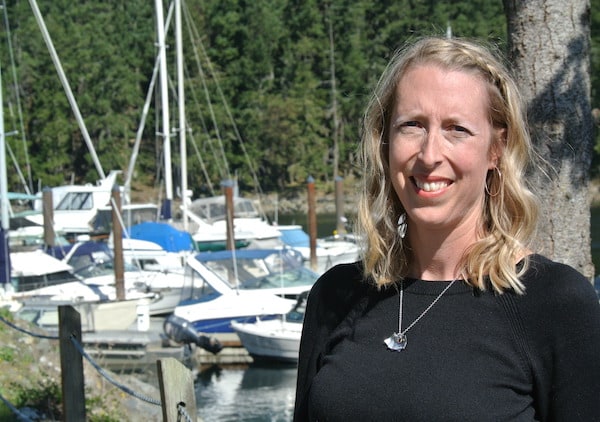
I reached a point in my journey when I knew I needed to find meaning in this experience or succumb completely to the disease.
youth
Taylin McGill
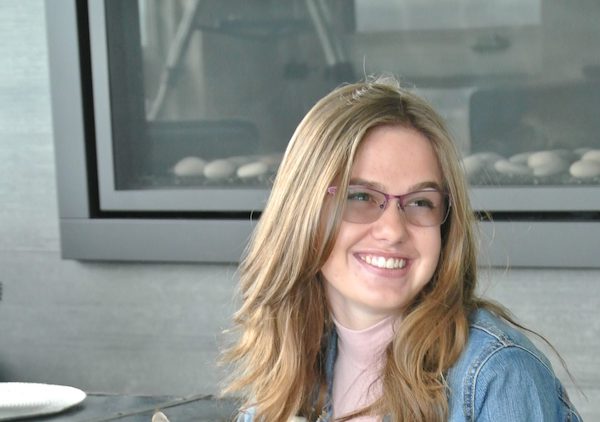
No Daddy, you don’t want this. This is mine. I never want you to have all these brain surgeries. I can do it.
– Taylin, as a child, responding to her father’s wish to ease her struggle
When she was just ten days old, Taylin McGill contracted salmonella which led to bacterial meningitis – a rare and life-threatening brain infection. To recover from this devastating illness, and the resulting secondary infections and ongoing seizures, she endured 14 invasive but life-saving brain surgeries before she was eight. Her experiences led to damage to various parts of her brain and nervous system, affecting her ability to walk, speak, learn, and plan.
Taylin approaches rehabilitation with positivity, gratitude, and a sense of humour. Not one to complain about her challenges, she works hard to set and accomplish goals with the steadfast support of her loving family. Now 17, Taylin is working on managing continued seizures, and developing basic life skills: preparing breakfast, remembering directions, and staying on her own.
Although her recovery is a lifelong journey, Taylin finds joy in sharing her story through public speaking engagements to inspire others like her, and to raise funds in support of BC Children’s Hospital Foundation. Taylin and her family have personally raised over $61,000 to help other children fulfil their hopes and dreams in the face of life-altering conditions. She spreads joy as a lively participant in the Delta Special Olympics Softball program, and was made the first-ever kid captain for the Vancouver Whitecaps. For her selfless generosity, community contributions, and strength of spirit, Taylin has received numerous awards. From her earliest days, Taylin has been resilient in the face of unthinkable hardship. She brings joy to everyone who meets her, and continually rises above her circumstance to make things better for her family and community.
